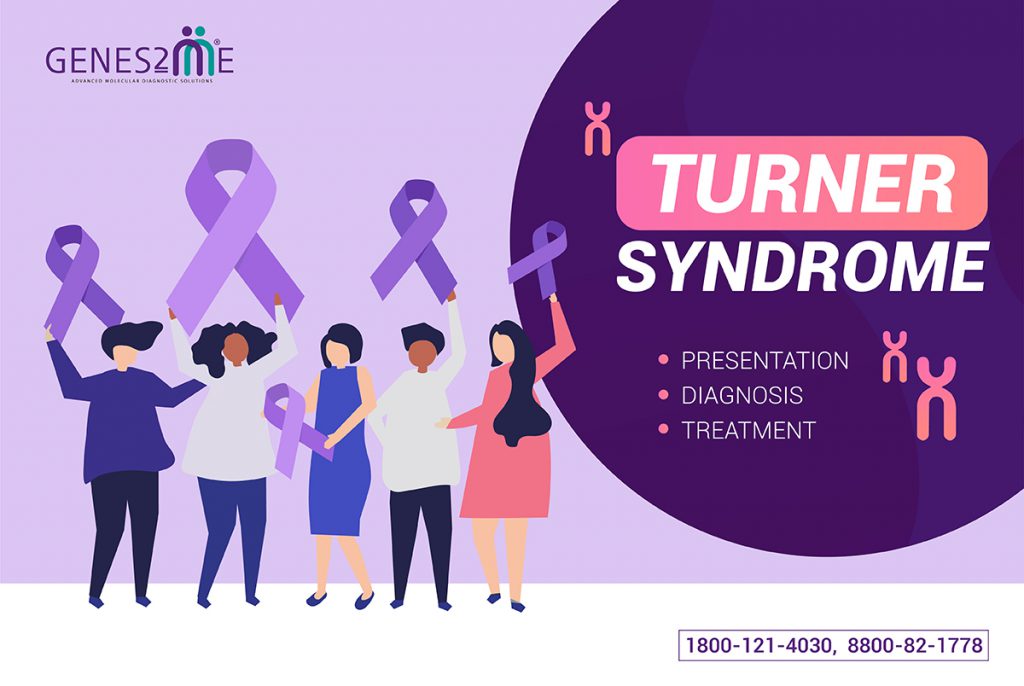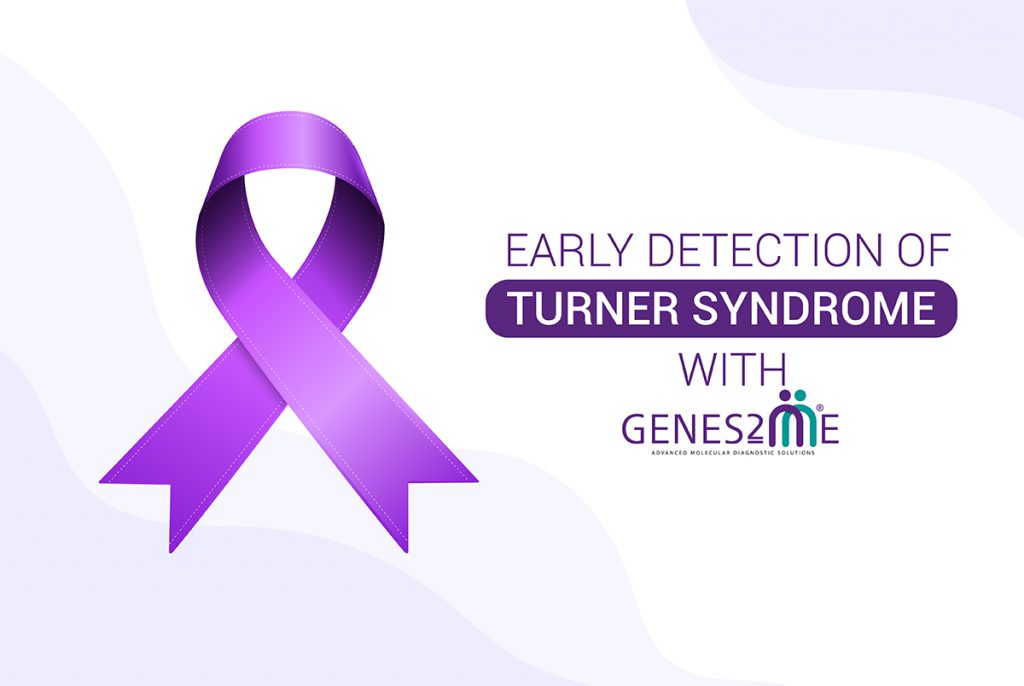Turner Syndrome Awareness Month – February

TURNER SYNDROME
February is celebrated as Turner syndrome awareness month. Turner syndrome is also known as Monosomy X, Gonadal Dysgenesis and Bonnevie-Ullrich Syndrome. It is one of the most common chromosomal abnormalities affecting females worldwide and results from partial or complete loss of chromosome X. Symptoms can vary from person to person. It occurs in approximately 1 in 2500 live female births, though the frequency is more among pregnancy losses (miscarriages and stillbirth).
PRESENTATION
Presentation of this condition can be as early as during pregnancy. It can be screened prenatally by non-invasive prenatal testing (NIPT). It can also be detected prenatally on an ultrasound scan which may show
- Large fluid collection behind the neck
- Heart defects
- Abnormal kidneys
Many babies at birth look absolutely normal. Others may show:
- Neck webbing (extra skin on the neck)
- Low-set ears
- Low posterior hairline
- Increased carrying angles at the elbows (arms turned outwards at the elbows)
- Small finger and toe nails turned upwards
- Short fourth metacarpals
- Widely spaced nipples
- Cardiac abnormalities like coarctation (narrowing) of the aorta
Main problems in almost all girls, teenagers and young women are short stature (height) & failure of ovaries to develop properly.
IS TURNER SYNDROME INHERITED?
One of the frequently asked questions about this condition is, “Is it inherited?” “Will I pass this condition to my child?” It is usually NOT inherited in families. It’s a result of random error during conceiving and no one has control over it. Usually a female has two X chromosomes, but in turner syndrome one of X chromosome can be either completely or partially lost. Another scenario which can happen is the affected female has few cells with both X chromosome and few cells have only one X chromosome. This phenomenon is called Mosaicism.
DIAGNOSIS
Though this condition is usually not inherited but the diagnosis is very crucial for the better development of the baby. Diagnosis can be made by chromosomal analysis. Karyotype might show following:
- Monosomy X: 45,X (Most common finding)
- Mosaicism (e.g., 45,X/46,XX) – Those with normal cell line (46,XX) have a chance of being fertile
- Isochromosome: 46,X,i(Xq)
- Ring: 46,X,r(X)
- Deletion: 46,X,del(Xp)
Exome Sequencing can also be offered which can detect genes like
- SHOX gene – believed to be a major contributor for short stature.
- TIMP3 & TIMP1 genes -increase the risk of cardiac abnormality like aortopathy.
UTX – increases predisposition to chronic otitis media.
TREATMENT
For the treatment of this condition, regular health checkups are very important starting with consulting a pediatrician, cardiologist, endocrinologist and ENT specialist regularly. Girls with turner syndrome may have heart related problems such as heart murmur and narrowing of aorta which requires proper treatment. In many cases, continuous infection of middle ear (chronic otitis media) can be problematic. Growth hormone therapy can help to normalize height. For development of secondary sexual characteristics and prevention of osteoporosis in the future, estrogen replacement therapy (ERT) is recommended to be initiated at adolescence. Most females with Turner syndrome are infertile for which in vitro fertilization (IVF) using donor eggs can be a prospect.

Early Detection of TURNER SYNDROME with GENES2ME
Lack of awareness about the condition is one of the reason that many cases of turner syndrome can go undiagnosed and the affected person don’t realize until complications related to heart, infertility begin to appear. Turner syndrome can be detected early during pregnancy with various testing options such as Non-Invasive Prenatal Testing (NIPT) which is an early screening test for all pregnant women. Other test includes identification of TS by Karyotyping, Fluorescent In-situ Hybridization (FISH), Quantitative Fluorescence-Polymerase Chain Reaction (QF-PCR), Chromosomal Microarray (CMA) and Sequencing test option which includes Exome Sequencing. Genes2Me offers these tests according to the requirement and different stages of pregnancy. We believe in Early Diagnosis, Health Babies!
